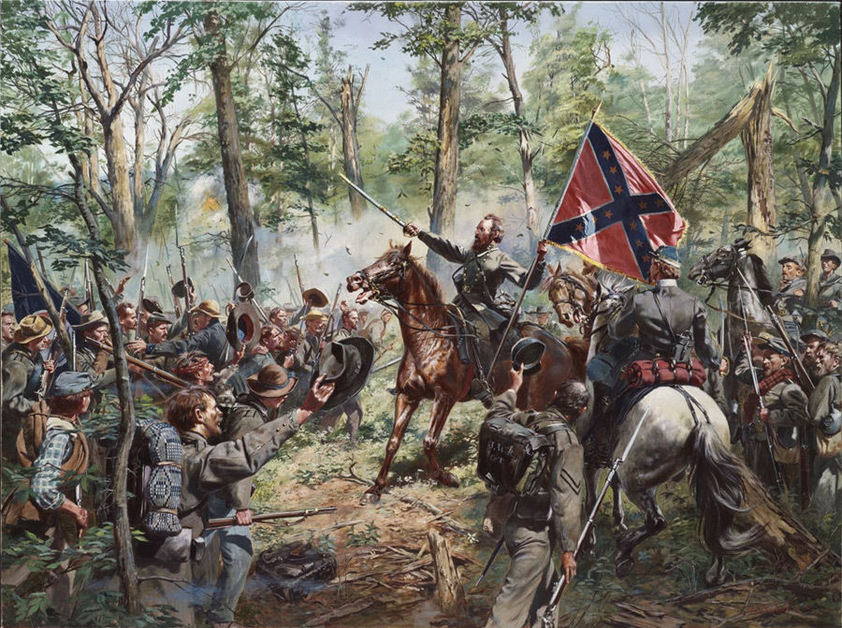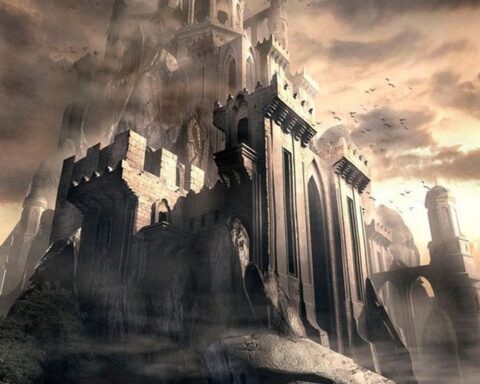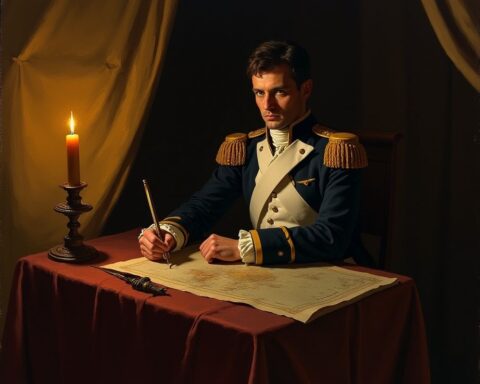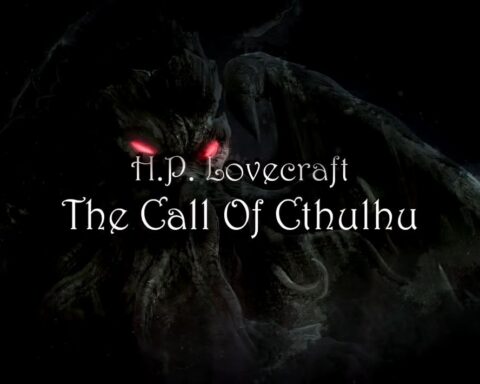“When captains courageous, whom death could not daunt”
Since this was mentioned under my previous post on Two Years Before The Mast I thought I’d quick one on it.
Kipling knows how to tell a story. This is a classic 19th-century bildungsroman. At points the phrases used, spoken in an Englishman’s perspective of a thick Main accent talking about antiquated sailing and fishing terms, were opaque to me. If you are reading the book and get to those parts, don’t despair! There aren’t that many and context provides enough clues to pick up the gist if not the specifics.
The main character, Harvey, starts out as a callow, spoiled, pampered, mama’s boy. The book plot is about his transformation into a young man with his feet set on the path to becoming an adult. It also captures a now distant past of a vibrant community of hard men that worked the unforgiving seas to earn their daily bread. Kipling allows us to see, albeit briefly, into their world, governed by the harsh laws of sea and work, directed by their own social rituals and rites.
So, even though on the surface it’s an enjoyable bildungsroman, it’s also a character sketch of men and business no longer part of our world. It’s a study in how to be a man, to know hard work and how to work hard, to get paid fair and square for that work, to work on your education, in whatever form, while young.
It’s a short book, a novella really, and yet Kipling packs a lot into it besides just Harvey’s transformation. Chapter 9 has been called “a classic of railway literature”[1] as one example.
The lessons highlighted in the book don’t need to be learned under duress. We can take Harvey’s example and apply it to our lives without needing to get stranded on a fishing schooner in order to learn the value of hard work and male acceptance for that work. We can understand honor is a function of our peers and not just personal integrity.
[1] https://infogalactic.com/info/Captains_Courageous








We could build an entire series of articles based on Kipling. Everything from his novels (even SF stories to his poems
I fancy myself a bit of a Kipling aficionado. I would welcome that. Orwell’s essay on Kipling showcases the brilliance of both men.
I downloaded “two years before the mast” (off of Gutenberg.org free in kindle format!) as a result of your last post. I’m halfway through it now. Fucking breathtaking. Thanks.
Hhmmmmm. A Bildungsroman in novella length. Whom does that make me think of (cough, Werther)?
Goethe is so fundamental to the western canon (even in light of his libertine tendencies) that this could be interesting for your readership.
“Captains Courageous” also has a deeply spiritual aspect to it. Personally, I tend to believe that the children of God have always existed with Him, and that at some point, each of us has the chance to leave our Father’s house and come here and experience earthly, human life in order to grow and to learn lessons that will prepare us for future responsibilities. Young Harvey experiences just this sort of journey in the book. He falls overboard (descends from the high place to the low), has to sojourn among rough creatures for a finite time, time which hardens, shapes, matures, and gives wisdom to Harvey. Then, when he has learned his lessons, he is returned from the lowly boat to his Father and is now capable of taking on a leadership role in the family business. It’s a very muscular metaphor.
Despite the attempted demonisation of Kiplin as the quintessential racist misogynist, by Feminists and Leftists in general, the profound wisdom contained within his writings continues to shine through.
Here he is highlighting the dangerous folly of Men giving political power to Women.
WHEN the Himalayan peasant meets the he-bear in his pride,
He shouts to scare the monster, who will often turn aside.
But the she-bear thus accosted rends the peasant tooth and nail.
For the female of the species is more deadly than the male.
When Nag the basking cobra hears the careless foot of man,
He will sometimes wriggle sideways and avoid it if he can.
But his mate makes no such motion where she camps beside the trail.
For the female of the species is more deadly than the male.
When the early Jesuit fathers preached to Hurons and Choctaws,
They prayed to be delivered from the vengeance of the squaws.
‘Twas the women, not the warriors, turned those stark enthusiasts pale.
For the female of the species is more deadly than the male.
Man’s timid heart is bursting with the things he must not say,
For the Woman that God gave him isn’t his to give away;
But when hunter meets with husbands, each confirms the other’s tale—
The female of the species is more deadly than the male.
Man, a bear in most relations—worm and savage otherwise,—
Man propounds negotiations, Man accepts the compromise.
Very rarely will he squarely push the logic of a fact,
To its ultimate conclusion in unmitigated act.
Fear, or foolishness, impels him, ere he lay the wicked low,
To concede some form of trial even to his fiercest foe.
Mirth obscene diverts his anger—Doubt and Pity oft perplex,
Him in dealing with an issue—to the scandal of The Sex!
But the Woman that God gave him, every fibre of her frame,
Proves her launched for one sole issue, armed and engined for the same;
And to serve that single issue, lest the generations fail,
The female of the species must be deadlier than the male.
She who faces Death by torture for each life beneath her breast
May not deal in doubt or pity—must not swerve for fact or jest.
These be purely male diversions—not in these her honour dwells—
She the Other Law we live by, is that Law and nothing else.
She can bring no more to living than the powers that make her great,
As the Mother of the Infant and the Mistress of the Mate.
And when Babe and Man are lacking and she strides unclaimed to claim,
Her right as femme (and baron), her equipment is the same.
She is wedded to convictions—in default of grosser ties;
Her contentions are her children, Heaven help him who denies!—
He will meet no suave discussion, but the instant, white-hot, wild,
Wakened female of the species warring as for spouse and child.
Unprovoked and awful charges—even so the she-bear fights,
Speech that drips, corrodes, and poisons—even so the cobra bites,
Scientific vivisection of one nerve till it is raw,
And the victim writhes in anguish—like the Jesuit with the squaw!
So it comes that Man, the coward, when he gathers to confer,
With his fellow-braves in council, dare not leave a place for her,
Where, at war with Life and Conscience, he uplifts his erring hands,
To some God of Abstract Justice—which no woman understands.
And Man knows it! Knows, moreover, that the Woman that God gave him,
Must command but may not govern—shall enthral but not enslave him.
And She knows, because She warns him, and Her instincts never fail,
That the Female of Her Species is more deadly than the Male.
Since Western Women were given their political freedom, more Western Souls have been lost in abortion clinics than all the battle fields of Europe combined. For what?
Lazza, I’m glad you are liking “Two Years…” I’ll keep Goethe in mind.
Kirk, that’s one of the marks of a great novel, you can extend the lessons to loftier spheres.
David, thank you for posting that. Still one of my favorite Kipling poems. To answer your question, for solipsistic madness.
You know, I hate to say it because (nowadays, especially) it sounds a bit trite but I think Tolkien’s Lord of the Rings series is probably the best written story ever made. I only mention it because most people I’ve spoken with have only ever seen those atrocious movies; they’ve never read the book. But the story was born from Tolkien’s deep understanding of medieval literature and is a strong Catholic allegory. There’s a lot more there than most people assume.
On the subject of Tolkien, I cannot recommend highly enough as a subject for consideration into the western canon the story Gawain and the Green Knight. Tolkien does an excellent translation of the Old English that is available in paperback with The Pearl and …something else. It escapes me. But as for Gawain, it is a story of men that is rarely told. Of honor and virtue, solemnity and courage, restraint and temptation. it is truly brilliant.
And as a further suggestion, I might also mention Beowulf (a great tale about getting too full of yourself), the Gest of Robin Hood (if you can find them; they are great fun) and, of course, the Canterbury Tales which are another work of sheer brilliance by a master english poet.
One other thing I will mention; and I know I’ve talked too long already. The VAST majority of our western heritage is not in english…and is not likely to be. Ever. We might do well to start thinking about learning latin if we are ever going to get back in contact with who our people are and what we want outside of the immediate necessities. I never learned it, myself, and it has been a great sorrow of mine. My sons are already learning it. Just think what doors that would open for you.
And…I’m done. -dh
“Sir Gawain and the Green Knight” is only possible in a Christian framework. It makes no sense outside of it, so yes, it’s a very Western tale.
Same with LotR. That’s one of the reasons the movies, despite all other strengths like costume and set design, fail. The screenwriters didn’t understand the deep connection to Christianity.
“The VAST majority of our western heritage is not in english” Eh. Anything of import has been translated from the two greatest sources, Latin and Greek, and even though there is always something lost in translation, the salient concepts are well expressed. That said, it never hurts to know Latin.